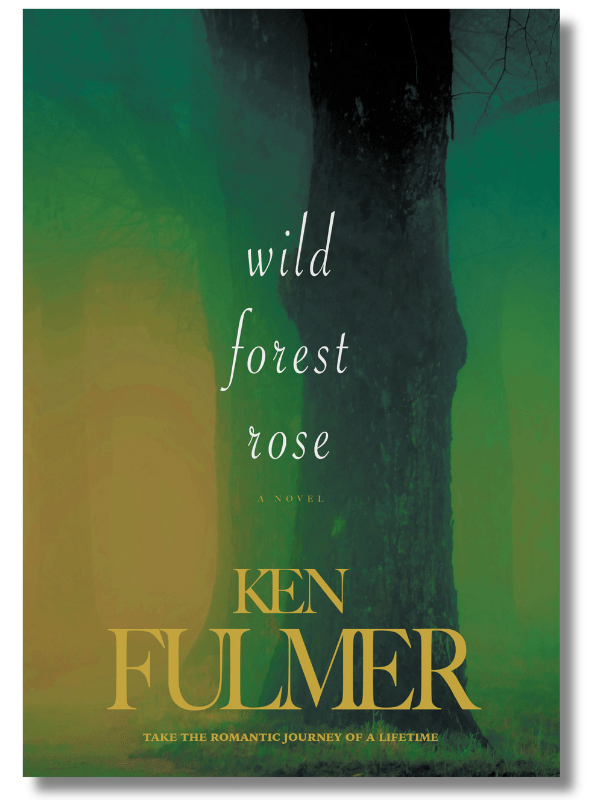Wild Forest Rose
by Ken Fulmer
Genre: Historical Fiction / Christian Fiction
ISBN: 9781955323130
Print Length: 530 pages
Reviewed by Lauren Hayataka
Where history and faith collide, salvation and obsession intertwine.
Ken Fulmer weaves an intricate tapestry of late 19th-century life in Wild Forest Rose, an impassioned tale of forgiveness, faith, and redemption. Through the turbulent lives of Nathan Marsh, a caustic surgeon haunted by his tragic past, and Daisy Lawrence, an intellectual with an indomitable spirit, the novel explores medical development, the complexities of abusive relationships, and the enormous interplay of faith and science.
The novel opens with Nathan Marsh, a brilliant but deeply flawed surgeon, reflecting on his lost love, Catherine Belmont, while grappling with the ghosts of his abusive childhood and shattered marriage. A heartbeat away, Daisy Lawrence—practical, witty, and terribly devout—sits beneath Union Depot lights, her Parisian past and heartbreak palpable.
They have an instant connection, one that ties them together as Daisy becomes his assistant. This connection becomes pivotal when Nathan’s former wife is found beaten and unconscious on Main Street in Dealey, Illinois. Her father places Nathan in charge of a hospital operating as an overflow facility for the city asylum, tasking him with overseeing his daughter’s care and revamping the struggling institution. Daisy’s role within the hospital expands beyond that of an assistant as she takes on the responsibilities of its sole psychiatrist, bringing compassion and innovation to its treatment practices.
Fulmer’s prose has an innate elegance, a flowing rhythm that deftly navigates the novel’s meaningful study on mental health. The depiction of medical advancements, particularly in psychiatry, is both detailed and immersive, with Daisy’s past work alongside luminaries like Jean-Martin Charcot and Sigmund Freud lending authenticity and depth. The exploration of mental illness, particularly the stigma surrounding schizophrenia, highlights the ignorance and misunderstanding of the time. Daisy’s groundbreaking role as a hospital psychologist and her empathetic approach to treating hysteria are among the novel’s standout elements.
Equally compelling is the novel’s complex relationships, particularly Nathan’s fraught connection to the women in his life. Haunted by the murder of his mother, Nathan searches for her in the numerous women he shares a past with, including Sheila, an Irish prostitute with whom he has spent over a decade. Yet, with her wit and resilience, Daisy is the only woman he does not see his mother in, offering a striking contrast to his tortured relationships.
Alongside this, the novel deftly examines the role of women at the time, highlighting their constrained societal positions and the suffocating expectations placed upon them. Through Daisy’s intellect and independence, Fulmer challenges these limitations, portraying a character who refuses to be defined by the era’s strictures. Fulmer has crafted characters of depth and complexity in a richly detailed world.
Wild Forest Rose is a contradictory study: savage yet sweet, horrifying yet comforting, with its heart fixed on the duality of damnation and salvation. The romance, though present, often takes a backseat as Daisy’s fixation on the state of Nathan’s soul becomes a distraction. This focus escalates into demonic possession, a theme that swells to overtake the rest of the story.
Nathan and Daisy’s once lively and engaging dialogue—full of humor and emotional complexity—becomes saturated with scripture, turning Daisy’s sharp intellect into a pulpit. While this aligns with her devout nature, it comes at the expense of her character’s vibrancy, reducing her to more of a mouthpiece for redemption. Nathan, in turn, becomes more of a vessel for salvation than a partner in the story’s romance, making their relationship feel secondary to the broader spiritual struggle.
The sense of obsession grows as the novel shifts further from romance to overt horror. Themes of demonic possession and their interplay with mental illness sideline the intimate and nuanced character dynamics in favor of a spectacle of moral and supernatural conflict.
There is much to admire in Fulmer’s Wild Forest Rose, from its thoughtful exploration of mental illness and the burgeoning field of psychiatry to its meticulous attention to historical detail, which lends the story a striking sense of authenticity. While its sprawling scope may challenge readers, the novel offers moments of beauty and poignancy that shine through its contradictions. Savage yet sweet, horrifying yet comforting, it reaches for the divine. Wild Forest Rose is a story of depth and consequence.
Thank you for reading Lauren Hayataka’s book review of Wild Forest Rose by Ken Fulmer! If you liked what you read, please spend some more time with us at the links below.
The post Book Review: Wild Forest Rose appeared first on Independent Book Review.
